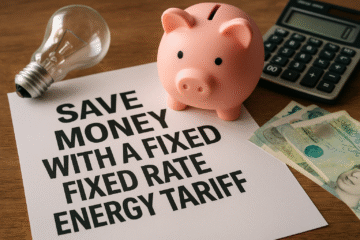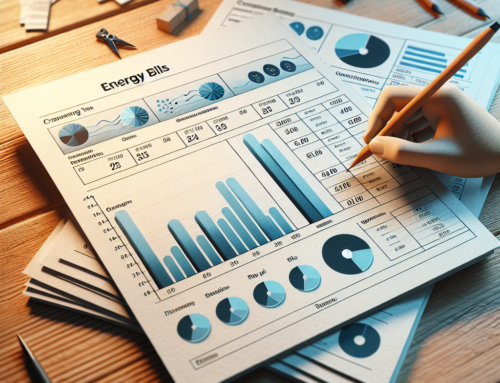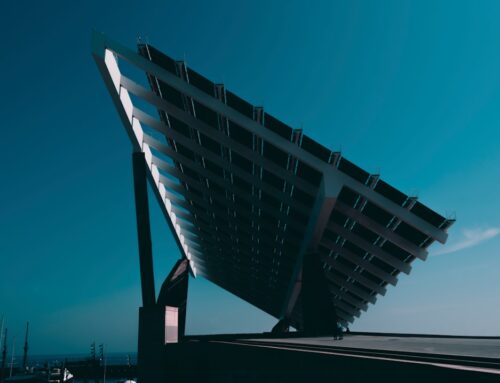Understanding your energy consumption is the first step towards making meaningful changes to reduce your energy usage and save money on your utility bills. Start by conducting an energy audit of your home to identify areas where energy is being wasted. This can include checking for air leaks, inspecting insulation, and assessing the efficiency of your heating and cooling systems. You can also monitor your energy usage by reviewing your utility bills and using smart meters to track your consumption in real-time.
Once you have a clear understanding of how and where you are using energy in your home, you can start to make informed decisions about how to reduce your consumption. This might involve making simple changes to your daily habits, investing in energy-efficient appliances, or even considering renewable energy sources. By taking the time to understand your energy consumption, you can take control of your usage and make positive changes that will benefit both your wallet and the environment.
Simple Changes for Big Savings
Making simple changes to your daily habits and routines can have a big impact on your energy consumption and help you save money on your utility bills. Start by turning off lights and appliances when they are not in use, using energy-efficient light bulbs, and unplugging electronics when they are not being used. You can also reduce your energy usage by adjusting your thermostat to a more moderate temperature, using ceiling fans to circulate air, and making sure that your home is properly insulated.
Another simple change that can lead to big savings is to be mindful of your water usage. Fixing leaky faucets, taking shorter showers, and using water-saving appliances can all help to reduce your water consumption and lower your utility bills. By making these simple changes, you can start to see significant savings on your energy and water bills without sacrificing comfort or convenience.
Investing in Energy-Efficient Appliances
Investing in energy-efficient appliances is a smart way to reduce your energy consumption and save money in the long run. When shopping for new appliances, look for products that have earned the Energy Star label, which indicates that they meet strict energy efficiency guidelines set by the Environmental Protection Agency. Energy-efficient appliances, such as refrigerators, washing machines, and dishwashers, use less energy to operate, which can result in lower utility bills and reduced environmental impact.
In addition to choosing energy-efficient appliances, you can also make simple upgrades to existing appliances to improve their efficiency. For example, you can install low-flow showerheads and faucet aerators to reduce water usage, or add insulation to your water heater to improve its efficiency. By investing in energy-efficient appliances and making simple upgrades, you can make a significant impact on your energy consumption and save money on your utility bills.
Harnessing the Power of Natural Light
Harnessing the power of natural light is a simple yet effective way to reduce your energy consumption and create a more comfortable living environment. By allowing natural light to enter your home, you can reduce the need for artificial lighting during the day, which can lead to lower energy usage and reduced utility bills. To maximise natural light in your home, consider using light-coloured window treatments, strategically placing mirrors to reflect light, and trimming back any foliage that may be blocking windows.
In addition to reducing the need for artificial lighting, natural light can also help to warm your home during the winter months, reducing the need for heating. To maximise the heating benefits of natural light, consider opening curtains and blinds during the day to allow sunlight to enter your home, and closing them at night to retain heat. By harnessing the power of natural light, you can reduce your energy consumption and create a more sustainable and comfortable living environment.
Maximising Heating and Cooling Efficiency
Heating and cooling account for a significant portion of a home's energy consumption, so maximising the efficiency of these systems is crucial for reducing energy usage and saving money on utility bills. Start by ensuring that your heating and cooling systems are properly maintained and serviced regularly to ensure that they are operating at peak efficiency. This can include changing air filters, cleaning ducts, and inspecting for any leaks or inefficiencies.
In addition to regular maintenance, you can also make simple changes to improve the efficiency of your heating and cooling systems. This might include installing a programmable thermostat to regulate temperature settings, using ceiling fans to circulate air, and sealing any air leaks or drafts in your home. By maximising the efficiency of your heating and cooling systems, you can reduce your energy consumption and enjoy lower utility bills without sacrificing comfort.
Smart Home Technology for Energy Savings
Smart home technology offers a range of innovative solutions for reducing energy consumption and saving money on utility bills. From smart thermostats that learn your heating and cooling preferences to smart lighting systems that can be controlled remotely, there are a variety of options available to help you manage and reduce your energy usage. By using smart home technology, you can monitor and control your energy consumption in real-time, identify areas where energy is being wasted, and make adjustments to improve efficiency.
In addition to managing energy consumption, smart home technology can also help you save money by optimising the use of appliances and systems in your home. For example, smart appliances can be programmed to run during off-peak hours when electricity rates are lower, or automatically shut off when not in use. By investing in smart home technology, you can take control of your energy usage and enjoy significant savings on your utility bills.
Sustainable Energy Sources for Your Home
In addition to reducing energy consumption through efficiency measures, you can also consider investing in sustainable energy sources for your home. Renewable energy sources such as solar panels, wind turbines, and geothermal systems offer clean and sustainable alternatives to traditional fossil fuels, which can help to reduce your environmental impact and lower your reliance on grid electricity. While the initial investment in sustainable energy sources may be higher than traditional options, the long-term savings on utility bills and potential government incentives can make them a cost-effective choice for many homeowners.
In addition to generating renewable energy on-site, you can also consider purchasing green power from renewable sources through your utility provider. Many utilities offer green power programs that allow customers to support renewable energy projects by purchasing renewable energy credits or subscribing to a green power tariff. By investing in sustainable energy sources for your home, you can reduce your environmental impact, lower your energy consumption, and potentially save money on your utility bills in the long run.
In conclusion, understanding your energy consumption is the first step towards making meaningful changes to reduce your usage and save money on utility bills. By making simple changes to daily habits, investing in energy-efficient appliances, harnessing natural light, maximising heating and cooling efficiency, using smart home technology, and considering sustainable energy sources, you can take control of your energy usage and enjoy significant savings while reducing your environmental impact. With a combination of these strategies, you can create a more sustainable and comfortable living environment for yourself and future generations.





